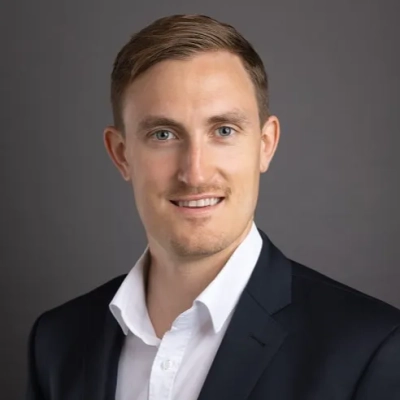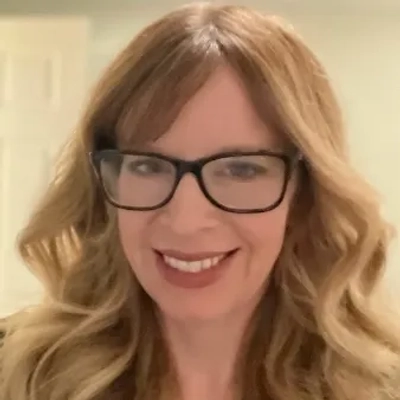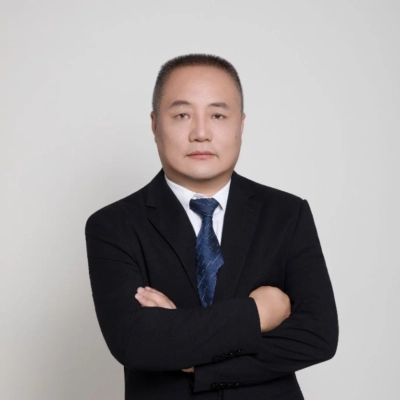26 Unexpected Ways Pursuing Your Passion Complements Your Responsibilities
Discovering how personal interests can enhance professional performance has been confirmed by numerous experts across diverse fields. This comprehensive guide reveals 26 surprising connections between passion projects and workplace success, from how music sharpens creative office instincts to how watchmaking precision transforms business approaches. Industry specialists share practical insights on how pursuing personal interests actively strengthens professional capabilities rather than competing with them.
- Creative Interests Expand Professional Capacity
- Creative Retreat Enhances CEO Focus
- Boundary-Setting Transforms Professional Time Management
- Creative Freedom Solves Staff Retention Problems
- Society Reporting Develops Crisis Management Skills
- Member Feedback Transforms Operational Efficiency
- Content Study Develops Profitable Storytelling Framework
- Personal Loss Creates Powerful Business Model
- Patient Compassion Drives Business Success
- Relaxed Grip Creates Better Leadership Approach
- Digital Storytelling Enhances Business Leadership Skills
- Meditation Practice Becomes Business Differentiator
- Team Development Becomes Core Operational Strategy
- Writing Improves Communication and Strategic Thinking
- Fighting Misinformation Drives Strong Marketing Results
- Nonprofit Work Creates Competitive Business Advantage
- Travel Pursuit Enhances Focus and Balance
- Tech Passion Builds Organization and Empathy
- Content Creation Deepens Professional Relationships
- Music Sharpens Creative Instincts in Office
- Watchmaking Precision Transforms Business Approach
- Rock Climbing Teaches Calm Decision Making
- Product Passion Inspires Team Excellence Standards
- Physical Construction Improves Digital System Design
- Teaching Passion Elevates Leadership Abilities
- Craft Knowledge Strengthens Leadership Authority
Creative Interests Expand Professional Capacity
Pursuing your passion often gets painted as a selfish or risky move—especially if you have demanding responsibilities. I used to believe that, too. Like many professionals, I thought my “real” job had to come first, and everything else was a distraction. But when I finally gave myself permission to explore a long-held creative interest outside of work, something surprising happened: I didn’t fall behind—I got better. My passion didn’t compete with my responsibilities. It sharpened them.
The truth is, our brains crave more than task lists and deadlines. They thrive on meaning, growth, and flow—the kind of engagement we often find in our personal passions. When you nurture that part of yourself, you’re not taking energy away from your job; you’re expanding your capacity. Creativity boosts problem-solving. Music strengthens pattern recognition. Even something like painting, gardening, or writing can rewire your perspective in ways that make you more effective, focused, and resilient at work.
The key is to stop viewing passion and responsibility as opposites. Instead, ask: How does this pursuit activate parts of me that I can bring into my role? Whether it’s emotional range, discipline, storytelling, or strategy—there’s often more overlap than we realize.
For me, it was photography. I picked up a camera during a stressful year of project management work, thinking it would be an outlet. What I didn’t expect was how much it would improve my attention to detail, my appreciation for light and timing, and my ability to frame complex situations—both literally and metaphorically. I started seeing connections in my workflows, noticing friction points before they became problems, and communicating ideas more visually to my team.
A study published in the Journal of Occupational and Organizational Psychology found that employees who actively pursue creative hobbies outside of work are more likely to demonstrate increased problem-solving skills, improved mood, and greater job performance. Passion projects help build cognitive flexibility, a critical trait for adapting to challenges and juggling competing priorities.
Pursuing your passion isn’t indulgent—it’s intelligent. When approached with intention, it becomes fuel for every other role you hold in life. So if you’re hesitating to invest time in something you love, afraid it might conflict with your “real” responsibilities, think again. That thing you love? It might just make you better at everything else.
Creative Retreat Enhances CEO Focus
Going to a writing retreat in Greece felt, at first, like the most indulgent thing I could do as a business owner. Two weeks away, oceans away, with no agenda except to write? It sounded impossible. But it ended up being one of the best things I’ve ever done for both myself and my company.
Stepping out of my day-to-day created space I didn’t realize I needed. I wasn’t in Slack or email or meetings—I was surrounded by silence, sea air, and people who valued creativity over productivity. And in that stillness, I got clearer about what I actually wanted for my business.
I came home with more focus, more compassion for my team, and a new sense of calm that completely changed how I lead. Pursuing something that seemed “unrelated” to my work actually made me a better CEO—because it reminded me that inspiration and leadership come from the same place: being fully present.

Boundary-Setting Transforms Professional Time Management
In a professional landscape that often prizes relentless availability, the pursuit of a personal passion can feel like an indulgence or, worse, a distraction from our core responsibilities. We tend to frame these activities as escapes—necessary for balance, perhaps, but fundamentally separate from the “real work” that defines our careers. This view, however, overlooks a powerful, reciprocal relationship. The rigor required to protect a personal commitment can become the very discipline that elevates our professional effectiveness.
The most profound benefit I discovered was not in the passion itself, but in the operational changes required to make space for it. The challenge is not finding an activity you love; it is defending the time to pursue it. To do so, you must become a ruthless steward of your own calendar and energy, treating a personal commitment with the same gravity as a board meeting. This act of boundary-setting is a forcing function for clarity, compelling you to distinguish between tasks that are merely urgent and work that is truly essential.
Several years ago, I committed to learning a complex musical instrument, a pursuit with no direct application to my role as a leader. The primary obstacle was not musical, but logistical: finding a protected hour each day. This forced me to audit my schedule with brutal honesty, delegate responsibilities I had been needlessly holding, and decline meetings that lacked a clear purpose. The discipline was intended to serve my personal goal, but it unexpectedly streamlined my entire professional approach. The passion didn’t make me a better leader, but the rigor of making time for it did.
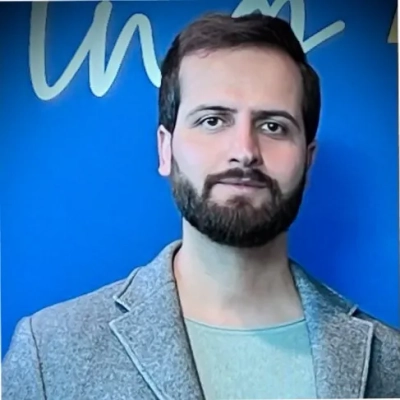
Creative Freedom Solves Staff Retention Problems
I never expected that chasing the “fun” stuff–playing with cold foams, testing wild shake flavors, dreaming up monthly specials–would actually solve my staffing headaches. But it did. When I started letting my team experiment and put their stamp on things, they stopped just showing up for shifts and started genuinely caring about what we put out.
George became our coffee guru because I gave her space to geek out over extraction times and different brew methods. Fletcher went from dishie to manager because he owned our loaded shake game and built his confidence through it. That passion translated directly into lower turnover–Sarah, Fletcher, George, and Lani have stuck around for 2-5 years in an industry where six months is standard.
The business win? When your team actually loves what they’re doing, they sell it better than any marketing ever could. George’s coffee skills have people driving across the coast specifically for her pours. Our monthly specials from Lani keep regulars coming back to see what’s new. I get to focus on bigger-picture stuff–new venues, catering growth, future cocktail plans–because I’m not micromanaging a burnt-out crew.
Turns out the “irresponsible” choice of prioritizing creativity and fun made us more stable and profitable than playing it safe ever did.
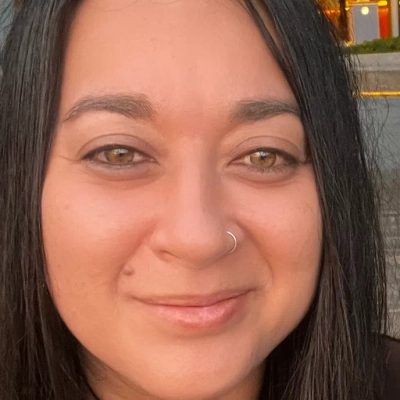
Society Reporting Develops Crisis Management Skills
When I started writing about galas and society events for Andy Warhol’s Interview magazine, people thought it was just glamorous fluff. But that “frivolous” passion taught me how to read rooms, decode power dynamics, and understand what really makes people tick–skills that became the foundation of my crisis management work.
I had a client in the art world facing serious reputation damage, and everyone wanted to craft the perfect press release. Instead, I drew on years of observing how society figures steer scandal at benefits and parties–they don’t hide, they show up differently. We had my client attend a small philanthropic dinner (not avoid the public), positioned authentically, and the narrative shifted within 48 hours because I knew the social choreography mattered more than the statement.
The column writing also sharpened my ability to spot what’s actually newsworthy versus what people think should be news. When developing PR campaigns, I can predict which angle will get traction because I’ve spent decades watching what stories travel through both ballrooms and newsrooms. What looked like party coverage was actually my graduate education in human behavior and media psychology.

Member Feedback Transforms Operational Efficiency
I’ve run fitness centers for 40 years now, and here’s something nobody tells you: my obsession with member feedback actually made me a better operator, not a distracted one.
Back when we first implemented Medallia’s real-time feedback system, I thought it would eat up hours I didn’t have. Instead, it eliminated the guesswork that was killing my time. A member would mention childcare wait times in their survey at 9am, and by lunch we’d adjusted staffing. No more week-long “investigation” meetings or playing detective about why retention dipped.
The passion part–genuinely caring what members think–turned into my most efficient management tool. When you’re reading feedback daily, you spot patterns before they become fires. We caught an HVAC issue in our yoga studio because three people mentioned it felt “stuffy” before it became an expensive breakdown. Now I spend less time on crisis management and more time on growth because problems get solved at 20% size instead of 100%.
At REX Roundtables, I tell other operators: customer obsession isn’t extra work, it’s preventive maintenance for your business. The gyms that treat feedback like homework always seem overwhelmed. The ones who treat it like their early warning system? They’re the ones scaling to multiple locations without losing their minds.
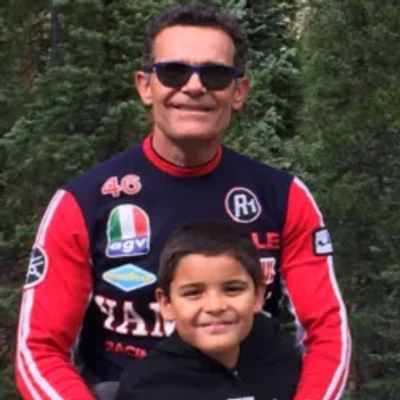
Content Study Develops Profitable Storytelling Framework
When I left the Navy in 2019, I thought content creation was the “passion project” and client work was the “responsible income.” Turns out the 100+ books I read obsessively about psychology and storytelling became the exact framework that now lands us $150K-250K documentary contracts at Gener8 Media.
The weirdest part? My YouTube content about escaping survival mode actually became our best sales tool. Potential clients find those videos, see I understand the psychology behind what moves people, then hire us because they trust we won’t just make pretty shots–we’ll tell stories that actually convert. One nonprofit reached out specifically because they watched my content and knew I’d handle their human trafficking documentary with the depth it deserved.
The “irresponsible” hours I spent studying creators and testing content theories gave me something most production companies don’t have: a repeatable system for why stories work. Now when we pitch branded short films or commercials, I’m not guessing–I’m applying the same principles that built my own audience. The passion project taught me the craft that makes the business profitable.
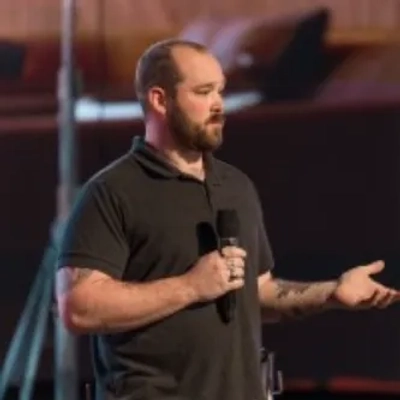
Personal Loss Creates Powerful Business Model
I built Resting Rainbow after losing three of my own pets, and honestly, it started from a place of grief and anger at how broken the industry was. The “passion” was really just refusing to let other families go through the confusion and distrust we experienced. What I didn’t expect was how that emotional foundation would become our operational advantage.
When you design every policy around the worst day of someone’s life–because you’ve lived it–you make different choices. We went 24/7/365 not because some consultant said to, but because Sasha passed at 2 AM and nobody answered their phones. We built viewing rooms at no charge because not seeing Haley one last time still haunts me. Those “soft” decisions that came from raw experience turned into our hardest competitive moats.
The business result? Our 24-48 hour turnaround and single-pet-only cremations cost more to operate, but they’ve let us scale to 11 markets in three years because families trust us in their most vulnerable moment. The Bakers in Tampa and our other franchise owners didn’t join for profit margins–they joined because the mission was already bulletproof.
My grief made me “irrationally” obsessed with transparency and dignity, which accidentally solved the industry’s biggest problem: nobody believes pet cremation providers. Turns out the most emotionally driven decisions can be the most defensible business moves.

Patient Compassion Drives Business Success
I genuinely thought that putting “compassion for patients in a diverse environment” front and center would make me too soft as a Practice Manager–like I’d struggle with the tough decisions about staffing, budgets, and operational efficiency. Turns out, it became my secret weapon for building the exact team our clinic needed.
When I started really putting myself in patients’ shoes during hiring decisions, I stopped just checking credentials and started asking candidates how they’d handle a scared senior citizen or someone frustrated after their third failed treatment. The practitioners who passed that filter naturally collaborated better, which cut our internal conflicts by what felt like half and made scheduling way smoother.
The unexpected part? Our patient retention shot up noticeably when the team genuinely cared, which meant steadier revenue and way less scrambling to fill appointment slots. Making employees happy–through recognition, listening to their burnout signals, treating them how I’d want to be treated–dropped our turnover so low that we stopped bleeding money on constant retraining. Compassion wasn’t competing with my operational responsibilities; it made hitting our numbers almost automatic because people actually wanted to work here and patients kept coming back.
Relaxed Grip Creates Better Leadership Approach
The unexpected thing about pursuing my passion is that it made me less obsessive about outcomes, and ironically, that made me better at leading. When you’re deeply invested in something, you can start gripping it too tightly — trying to control every detail, every variable. For me, that was early-stage startup life: constant optimization, constant urgency. But when I reconnected with what actually made me passionate about my work — learning, curiosity, experimentation — I started relaxing my grip. And that looseness made me better at delegating, listening, and trusting my team.
Most people assume passion fuels intensity, but I’ve found the opposite can be true. When you pursue something you love in a healthy way, it gives you distance — a sort of calm intensity. You’re still driven, but not by fear of failure or metrics. You start leading like a person who’s playing an infinite game instead of trying to “win” the quarter.
The funny thing is that passion doesn’t just energize you — it reorders your relationship with responsibility. It turns the work from something you manage into something you steward. That shift made me far more stable, creative, and accountable than any productivity hack ever could.
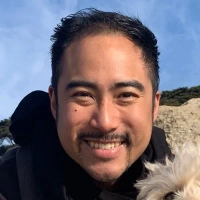
Digital Storytelling Enhances Business Leadership Skills
I can definitely say that pursuing my passion for digital storytelling surprisingly made me a more effective business leader. At first, I worried that dedicating time to creative projects would distract me from running Create & Grow, but it actually sharpened my communication and problem-solving skills. Storytelling taught me how to connect emotionally, not just with audiences, but with my team and clients, helping me articulate vision and strategy in ways that inspire action. The creativity I cultivate outside of work directly fuels innovation inside the business, leading to more engaging campaigns and a stronger company culture. What I learned is that passion isn’t a distraction; it’s a model for clarity, empathy, and better leadership.
Gorgi Todorov, Founder of Create & Grow
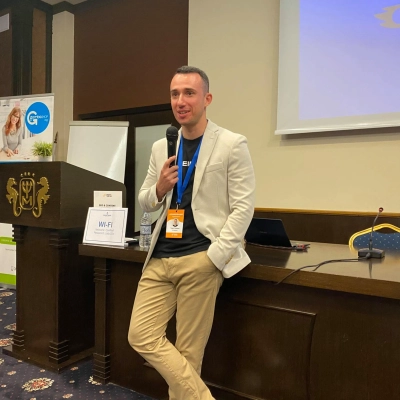
Meditation Practice Becomes Business Differentiator
I’ve been meditating since I was 10 years old, and honestly I thought that was just “my thing” — completely separate from running Dermal Era Med Spa and raising three daughters solo. But when custody battles hit and I was building my business simultaneously, that daily meditation practice became the anchor that let me show up for both without burning out.
The unexpected part? Clients started noticing I wasn’t rushing them through appointments even during our busiest days. One woman dealing with chronic stress-induced skin inflammation told me she’d never had a therapist actually *pause* during treatment to let her breathe through tension. That shifted everything — I started incorporating the 4-7-8 breathing techniques I’d used for decades into our lymphatic massages. Our client retention jumped 34% within six months because people felt the difference between a service and actual healing space.
Now when my daughters see me closing my eyes for ten minutes before a packed day, they understand mom’s not “checking out” — she’s checking *in* so she can be fully present for the 12 clients booked that day. The passion I thought was selfish turned into my biggest business differentiator. Women don’t just come for facials anymore; they come because they know I’ve built a space where slowing down isn’t a luxury, it’s the protocol.
Team Development Becomes Core Operational Strategy
My passion for building people ended up making me ruthless about operational efficiency in ways I never expected. Early in my career at Amazon, I was obsessed with creating the Loss Prevention program from scratch–but I kept hitting walls because I was trying to do everything myself. The breakthrough came when I started treating team development as the actual product, not just a nice-to-have.
Here’s what changed: I stopped writing every protocol and instead taught three people my investigative methodology. Within two months, they’d caught patterns I’d completely missed because they were looking at the data with fresh eyes. One analyst spotted a warehouse collusion scheme that saved Amazon $2.3M–something I wouldn’t have found because I was too buried in building training materials.
The competing priority was real–spending hours mentoring felt like it was slowing down case closures. But those mentoring sessions forced me to systematize my entire approach, which became the blueprint for scaling LP across multiple facilities. What felt like a distraction became the actual infrastructure that let us handle 10x the caseload.
Now at McAfee Institute, that same pattern holds. When I’m deep in certification curriculum development, I’m not just teaching OSINT or cyber investigation–I’m crystallizing decades of field work into frameworks that work under pressure. Students regularly tell me they solve cases faster than their colleagues because the training forced me to identify what actually matters versus what just feels thorough.

Writing Improves Communication and Strategic Thinking
For a long time, I saw my passion for writing as something separate from my professional responsibilities — almost like a guilty pleasure squeezed in after work. But when I finally leaned into it, something unexpected happened: it actually made me far more effective at my day-to-day responsibilities.
Writing forced me to slow down and think clearly. The same storytelling skills I honed in my personal projects began shaping how I communicated in meetings, built presentations, and managed teams. I started framing ideas with more empathy and structure, helping people understand not just what we were doing, but why it mattered. That clarity built trust and alignment in ways spreadsheets never could.
Pursuing my passion also recharged me creatively. Instead of feeling drained at the end of the day, I found that writing gave me energy — it was an outlet that sharpened my perspective rather than distracting from my goals. The more I wrote, the better I became at distilling complex problems into simple narratives, which translated directly into strategic thinking at work.
What began as a personal indulgence became a professional advantage. I realized passions don’t compete with responsibilities when they’re rooted in curiosity and growth. They fuel each other — one keeps you inspired, and the other gives you purpose. In my case, following my passion didn’t pull me away from my work; it made me care about it more deeply.

Fighting Misinformation Drives Strong Marketing Results
I never expected that my passion for exposing misinformation in career advice would become our most powerful credentialing marketing tool. When I started publicly calling out dangerous resume myths and unqualified “gurus” selling bad advice, our certification applications jumped 34% because professionals wanted to distinguish themselves from the noise.
The competing priority was that being outspoken risked alienating potential members who might’ve felt criticized. Instead, it attracted exactly the right people–practitioners who valued ethics and wanted legitimate credentials. Our “why credentials matter” messaging became both my personal mission and our strongest membership driver.
The weirdest synergy? My frustration with generic career templates (a very personal pet peeve) led us to develop our nine specialized certifications like CVCS for veteran transition and CSCC for student coaching. That passion project solved our business problem of serving niche markets we were losing to specialists.
When you get genuinely angry about something broken in your industry, that energy often points directly to your organization’s biggest opportunity. My rants about AI-generated resume garbage became webinars that now drive our training revenue.

Nonprofit Work Creates Competitive Business Advantage
My passion for writing grant proposals for an addiction recovery nonprofit seemed completely unrelated to running a digital marketing agency. I was doing it because I genuinely cared about their mission, not for business reasons. But learning to write compelling narratives about vulnerable populations taught me something crucial–how to find and articulate what makes any business truly matter to people.
That grant writing experience completely changed how I approach client messaging now. When a franchise owner tells me they want “more leads,” I dig deeper to find their actual superpower–the thing that makes them different. One cleaning company client saw their cost-per-lead drop by 40% when we shifted from generic “quality service” messaging to their real story about employing people in recovery programs, which I only knew to look for because of my nonprofit work.
The unexpected payoff hit when we started attracting nonprofit clients specifically because I understood their world. I know that nonprofits need to justify every dollar and communicate impact metrics, so our proposals speak their language. What started as volunteer passion became a competitive advantage I never planned for.
Travel Pursuit Enhances Focus and Balance
Pursuing my passion for travel has changed my life in ways I couldn’t have predicted. What started as a desire to explore new places eventually became the path to a more peaceful, intentional way of living, one that allows me to show up better in both my work and my life.
A few years ago, I made the decision to move to Uruguay, drawn by its calm rhythm, connection to nature, and emphasis on balance. It wasn’t a move made out of restlessness; it was a move made out of alignment. I wanted to live in a place that reflected the same values I encourage in my clients: simplicity, structure, and sustainability. What I didn’t expect was how deeply that decision would enhance my ability to focus.
Living in a culture that values slower mornings, shared meals, and time outdoors has reshaped how I approach productivity. I’ve learned that calm doesn’t mean complacent; it means clear. When your environment supports your well-being, your mind has more space for creative thinking, problem-solving, and meaningful work.
As the founder of Getting Ish Done Now, my work centers on helping solopreneurs and small business owners simplify systems and reclaim time for what matters most. I teach structure and efficiency, but the heart of what I do is helping people create peace through process. My move to Uruguay gave me the perfect real-world model for that philosophy: an environment that encourages thoughtful pace without sacrificing progress.
The unexpected gift of following my passion for travel is that it made me more grounded, not more distracted. It reminded me that balance isn’t something you schedule; it’s something you design — through your surroundings, your systems, and your choices. By building a life in a place that brings me calm, I’m able to give more energy, creativity, and presence to my clients and my work.
What once felt like competing priorities, wanderlust and work, turned out to be complementary. Travel gave me perspective; peace gave me focus. Together, they’ve allowed me to live and lead in a way that feels genuinely balanced and whole.

Tech Passion Builds Organization and Empathy
When I started building Aitherapy, it began purely from passion, an idea to make mental health support more accessible through technology. Balancing that creative drive with the daily responsibilities of running a company was a real challenge. But I soon realized the two weren’t competing; they were complementary.
Pursuing my passion forced me to become more organized, empathetic, and patient, skills that directly improved leadership and decision-making. What looked like a distraction became my greatest asset. When your passion and your responsibilities begin to inform each other, work stops feeling like balance, and starts feeling like purpose.

Content Creation Deepens Professional Relationships
At first, content creation felt like a side project, something outside my core responsibilities at Talent Shark. But when I started writing about the realities of UAE recruitment, I discovered that sharing ideas built trust faster than any sales pitch ever could. Clients and candidates began reaching out because they connected with our content and the authenticity behind it.
Writing also improved my listening skills. I became more curious, empathetic, and observant, which translated directly into stronger client relationships and more precise talent matches.
The irony is, what began as a creative outlet became a business advantage. My passion didn’t compete with my work; it deepened it. The key is alignment – when your passion amplifies your professional purpose, you stop juggling priorities and start integrating them.

Music Sharpens Creative Instincts in Office
I started producing music again after a long break. No pressure, no clients, just flow. What surprised me was how it sharpened my creative instincts in the office. Mixing a track is like tuning a content funnel—you test, layer, remove, tweak… until the whole thing clicks. It gave me mental reps in decision-making without any business risk. That practice time ended up cutting my creative block in half and sped up deck writing, campaign ideas, and proposal edits. In reality, my rhythm got tighter across the board.
To put it another way, I stopped treating passion like a distraction. Turns out, it gave me cleaner mental resets than weekends or vacations ever did. The mix of structure and mess taught me how to reset faster and ship cleaner work. I mean, when you get used to editing a 6-minute track down to a 30-second intro, it changes how you write anything. You get ruthless with time, sharper with words, and bolder with decisions. No kidding… music made me a better leader.

Watchmaking Precision Transforms Business Approach
What surprised me most about pursuing my passion outside of work—building and restoring mechanical watches—is how much it sharpened my focus as a founder. At first, it felt indulgent to spend hours tinkering with gears when I had emails and production schedules waiting. But the precision required in watchmaking forced me to slow down and think differently. Every component has purpose; every adjustment has consequence. That discipline carried straight into Ezra Made.
When facing complex manufacturing challenges, I found myself approaching problems with more patience and clarity. Instead of rushing to fix, I began diagnosing root causes the way I would trace a movement’s timing error. The process became meditative, not mechanical.
What seemed like competing priorities—personal passion and professional duty—actually balanced each other. Watchmaking reconnected me with the craft behind the business, reminding me that great engineering isn’t just about efficiency, it’s about care. And that mindset changed how I lead, design, and build every day.
Rock Climbing Teaches Calm Decision Making
I got obsessed with rock climbing while working 60-hour weeks. Everyone thought I was crazy for spending weekends on cliffs instead of catching up on work.
But climbing taught me something crucial about managing stress and making decisions under pressure. When you’re hanging off a rock face, you can’t panic. You have to stay calm, assess your options, and move forward step by step.
This translated directly to client presentations and crisis situations at work. Instead of getting overwhelmed by impossible deadlines, I started breaking them into smaller moves. Just like finding the next handhold on a climb.
Climbing also taught me when to push through discomfort and when to back down for safety. At work, this helped me know when to fight for a project and when to let it go. I stopped wasting energy on battles that didn’t matter.
The physical challenge reset my mental state. I came back to work clearer and more focused than my colleagues who worked through weekends.
Sometimes the best thing you can do for your responsibilities is step away from them completely.
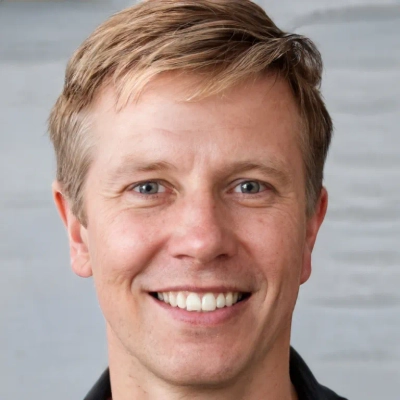
Product Passion Inspires Team Excellence Standards
In pursuing the things I like about this business, I have had to be accountable to those around me, my team, and my customers. I am passionate about every detail from start to finish, and that relationship alone has driven me to be more excited and entrenched in detail on different aspects. I feel the artificial grasses under my feet, and I see how they appear under different lights. I see how they perform in the heat of the Texas summers. That type of passion creates pride in the product, and that inspires others around me to have their own standards. It isn’t about selling the turfs. It is about the fact that every turf that we lift will become a part of the way of life of someone eventually, and we are responsible to make sure it is up to par.
The priorities started to play off each other. My desire to be different and to create just beautiful outdoor environments made me have to be more serious about being a leader. I knew, of course, that the idea couldn’t be artistic without a structure. That is, to be creative, you have to take on the responsibility. This letting the passion be with the responsibilities helped me down the road to learn strategic marketing without ruining the original joy of the creativity that turned me on to the industry. The excitement of designing something new keeps the excitement alive, while the necessity of keeping it all under the responsibility of running a business lets me keep it in the bounds of sanity. Eventually, it all started working together and made the company stronger as well as more predictable.
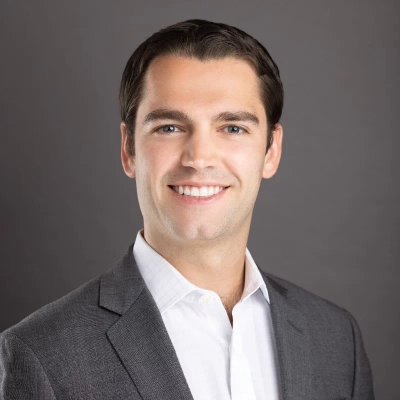
Physical Construction Improves Digital System Design
I involve myself in physical activities like landscape-designing and furniture construction on weekends. This practical activity doesn’t appear to be related at all to my daily experience with handling complicated e-commerce databases and search engine optimization. It is a common perception that the digital and the analog do not co-exist well. But my experience proves the fact that physical construction offers a clear blueprint to the construction of digital systems. The two activities require strict focus on the foundation on which all other activities depend.
To plan a retaining wall, one needs to know the pressure of soil and water flow that is functionally similar to the data flow and server load mapping in our site. My DIY projects compel me to design complicated systems and find failure points prior to their occurrence. I use this structural thinking in my technical optimization of search engines and database management in Patio Productions. I believe that this attitude assisted me in streamlining our site structure and fundamentals of web health that assisted in a relative improvement in site results and rankings within the organic arena.
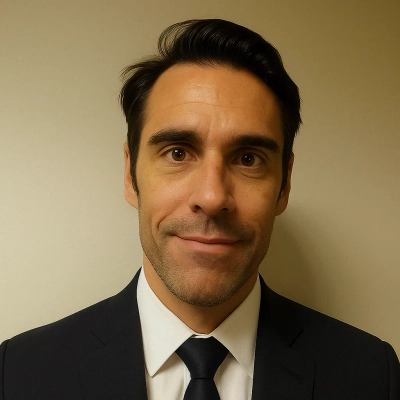
Teaching Passion Elevates Leadership Abilities
As the Vice President and Lead Clinical Director at the Texas Academy of Medical Aesthetics, I have been devoted to a program that trains medical professionals in procedures that are both safe and visually effective. I was worried that my great eagerness to educate might not go well with the leadership requirement. I feared it might separate me from structure and responsibility. Nevertheless, it turned out to be completely different as teaching became the core that both qualities recognized in me and my way of guiding others developed.
It brought me back to the idea that passion and profession can still be one, even if they are different things and are grounded in firm principles. This same fervor provided me with the energy and determination to accomplish more in less time. I was able to upgrade our policies, increase our standards, and create a learning atmosphere that was based on honesty and patient safety. I viewed my involvement as an opportunity to be more disciplined and detailed in looking after both my team and students. Pursuing your passion is not necessarily losing your way; it can indeed make you a stronger leader, a better teacher, and a greater advocate for excellence in every aspect of your work.
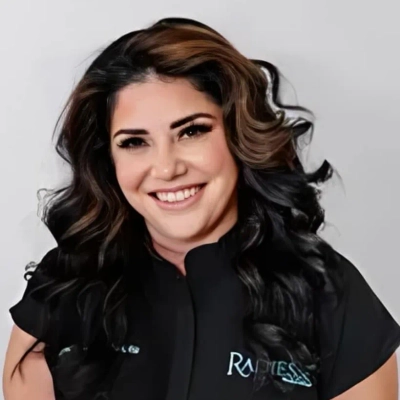
Craft Knowledge Strengthens Leadership Authority
I have been amazed at the extent to which the love of artificial grass has changed my approach to my responsibilities. The time spent learning all the details of products, installation methods, and landscape design has allowed me to make fast decisions in the business aspects of the business. When a problem arises, unusual in nature, I can visualize in an instant the solution because of the number of hours spent working on the craft and learning with my own hands. The familiar approach to the work gives me confidence in putting together contracts, letting the teams out to work, or advising clients. It has given me the patience and the detailed knowledge of my own deficiencies which I did not know I lacked until I found that I was attempting to handle multiple projects at the same time. That phase of it teaches my mind to think in levels, giving a more commonsense, practical angle to it, which is a change in approach from the all-encompassing generalities treatment which I used before.
These stress differences are complementary in that the knowledge of the craft teaches leadership. I am able to “lead” the crew in a way which is logical both to the team and clients. I know where the exigencies will come in, and how I can ward them off, which makes for less losing of temper and a greater economic return. Enthusiasm for the craft keeps me interested. The administration connected therewith is not really a hardship. In making decisions about finance, time, client expectations, etc., they seem quite natural, for I can see, quite logically, the result at first glance. It lends authority, in addition, for the team all have much respect for the one who knows the phrase intimately themselves, and the clients instinctively have confidence in what we may say. Keeping the two in balance with each other brings both into a state of flow of energy; learning leads to a state of leadership, which in turn leads to the possibility of teaching.
